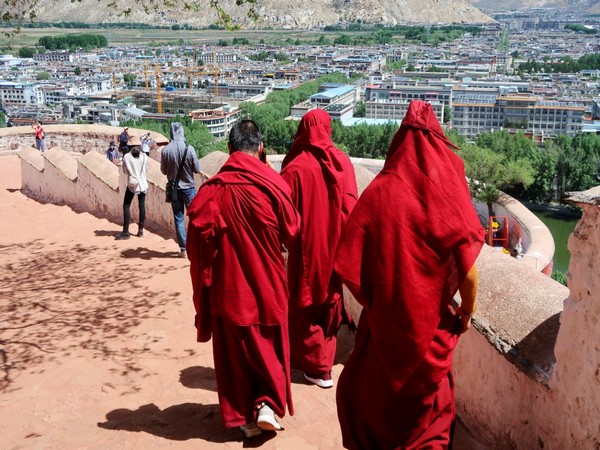Larung Gar Under Siege: China’s military presence signals escalating crackdown on Tibetan Buddhism
China has stationed around 400 military personnel at the Larung Gar Buddhist Academy in Serthar County, eastern Tibet. This deployment, according to the Central Tibetan Administration (CTA), is part of a broader strategy to tighten control over the region.
The arrival of troops on 20 December 2024, coupled with helicopter surveillance, signals an escalation of security measures at the world’s largest Tibetan Buddhist study centre.
Founded in 1980, Larung Gar has long been a hub for Buddhist monks and nuns seeking to deepen their spiritual education. However, it has faced increasing restrictions from the Chinese government, which views the academy as a centre of Tibetan identity and autonomy.
Previous crackdowns, particularly in 2016–2017, saw thousands of monastic dwellings demolished and many practitioners forcibly evicted. Consequently, the population at Larung Gar has been halved from around 10,000 to a significantly smaller number.
The CTA reports that China plans to impose new regulations at Larung Gar, including limiting residents’ stay to a maximum of 15 years. Additionally, all monks and nuns will be required to register with the authorities, and the total number of religious practitioners is expected to be reduced. Chinese students are reportedly being asked to leave, signalling a targeted effort to further decrease the academy’s population.
These measures represent a continued effort by the Chinese government to exert greater control over Tibetan Buddhist institutions and restrict religious freedom in Tibet, where traditional Buddhist practices have come under increasing pressure.
The Larung Gar Academy, once a beacon of Tibetan Buddhist scholarship, now faces heightened state surveillance and restrictions, reflecting the broader trend of diminishing religious autonomy in the region.
The increasing military presence and stringent regulations signify China’s ongoing efforts to control Tibetan Buddhism and consolidate state control over the region’s spiritual institutions.
(ANI)

No comments:
Post a Comment